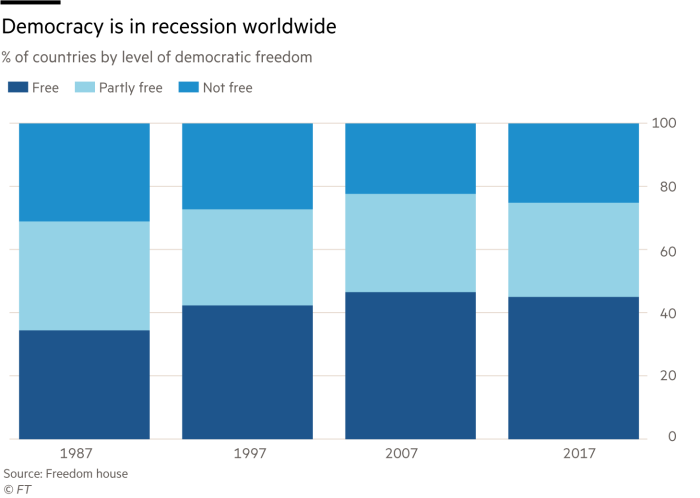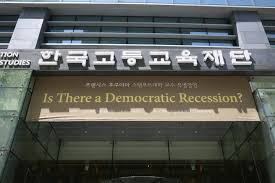The consensus on democratic norms has shown signs of fraying in recent years, with increased polarization, disillusion and authoritarian patterns of governance, including in advanced Western democracies, a recent World Economic Forum heard (above).
In the wake of what Stanford professor Larry Diamond, founding co-editor of the NED’s Journal of Democracy, calls the democratic recession, how serious are the strains on democracy and what steps can be taken to reinvigorate democratic societies and institutions? asked Daniel Kurtz-Phelan, executive editor of Foreign Affairs.
Democracy is in crisis because we ignored the social problems caused by globalization, mismanaged the challenges of immigration and cultural diversity, and failed to appreciate how social media have changed the ways in which public opinion is structured and influences, said Egils Levits, the President of Latvia. Populism “offers the wrong answers to the right problems,” he added.
“The single most important thing we can do to advance democracy globally is to advance democracy domestically,” said US Senator Chris Coons. If democracies don’t address the needs of constituents, democratic institutions and processes will lose legitimacy.
“Democracies speak to the vulnerable, oligarchy does not,” said Pakistan cabinet minister Sherry Rahman. We need to guard against the theory that problems like climate change can be solved more readily by authoritarian regimes. But there are different models of democracy so it should not be seen as ‘one size fits all’.
The neglect of the humanities – not just the study of history, but of literature and philosophy, too – has weakened our ability to explain to each other just what’s at stake if we let democracy decline, said Yale historian Timothy Snyder. It’s also impossible to have a shared democratic discourse when inequality is so stark, he added. It is imperative to recover the lost language that allows us to describe why democracy is better.









